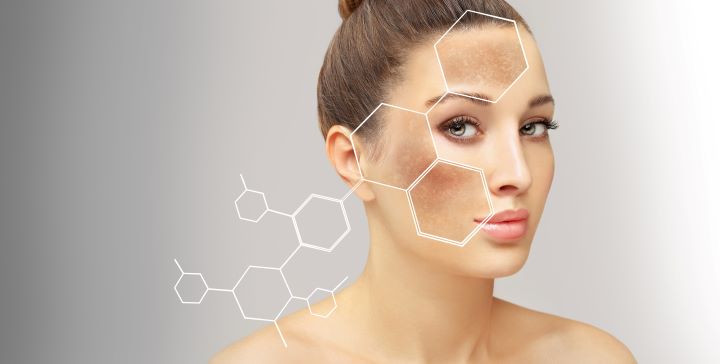Skin Pigmentation: Causes and Treatments

Skin pigmentation means coloring of the skin which is mainly influenced by melanin, a pigment produced by cells known as melanocytes. Pigmentation is a normal part of skin; however, various factors can cause the skin to have an uneven tone or dark areas. Knowledge of the factors that trigger pigmentation and the possible interventions is crucial to combating this problem.
Causes of Skin Pigmentation
- Sun Exposure: Sun exposure especially to Ultraviolet (UV) light may increase melanin synthesis, which results in sunspots or skin discoloration. It can also worsen the pigmentation problems if one is exposed for a long time.
- Hormonal Changes: Conditions like pregnancy or taking hormonal drugs may lead to melasma that is hyperpigmentation on the skin particularly on the face present as brown patches.
- Post-Inflammatory Hyperpigmentation: Hyperpigmentation of the skin is when the area of the skin that has been injured, has acne, or is irritated in any other way turns darker as it heals. This kind of pigmentation can develop on any part of the body.
- Genetics: Hereditary also affects the color of the skin as far as pigmentation is concerned. Some people may have a tendency of developing some of the conditions such as freckles or age spots due to their genes.
- Certain Medications: Chemotherapy and some antibiotics are some of the medications known to cause skin color changes as a side effect.
- Age: Over the years, the skin may start to produce dark spots on the skin known as age spots or liver spots as a result of exposure to the sun.
- Skin Conditions: Other situations include conditions such as eczema, psoriasis, etc. , which result in Post-Inflammatory Hyperpigmentation, where the skin is left with dark spots even after the inflammation has been brought under control. For more information refer to a Skin Specialist in Rawalpindi.
Treatments for Skin Pigmentation
- Topical Treatments: Lotions and creams which can be purchased over the counter, or from a pharmacy, which contain such as hydroquinone, kojic acid, azelaic acid or vitamin C can help to reduce the darkness of the spots and level out skin tone.
- Chemical Peels: This treatment involves the use of a chemical solution which is applied on to the skin and results in formation of a new skin as the top surface of the skin peels off. It does exfoliate the skin and aids in removing the unwanted pigmentation giving the skin a better texture.
- Laser Therapy: Laser treatments affect melanin, the pigment of the skin; they aim at breaking it down to restore an even skin tone. The kind of laser to be used depends on the degree and kind of pigmentation to be removed.
- Microdermabrasion: It is a superficial procedure that involves the use of crystals to eliminate the upper layer of the skin, the dead skin cells, thus assisting in diminishing the dark spots and enhancing skin’s texture.
- Intense Pulsed Light (IPL): IPL therapy works by emitting light which is used to treat pigmentation, it helps in the destruction of melanin and lightening of dark areas.
- Retinoids: Retinoids available with a prescription work to speed up cell turnover and can help reduce the appearance of dark spots caused by PIH. They can also enhance the general condition of the skin as well as minimize the signs of aging such as fine lines.
- Sunscreen: It is recommended to use a sunscreen lotion with a sun protection factor of at least 30 on a daily basis to avoid further darkening of the skin as well as to prevent UV induced skin damage. Sunscreen also prevents the pre existing spots from becoming darker.
- Natural Remedies: There are several natural ingredients that you can use to lighten the pigmentation when applied on the skin including licorice extract, turmeric, and aloe vera. However, results can vary.
Conclusion
There are several causes of skin pigmentation such as; sunlight, hormonal changes, and heredity. There are many treatments that can help in pigmentation problems but it is advised to consult the Best Skin Specialist in Lahore for the suitable treatment. Adhering to a proper skincare regimen as well as protective measures such as the use of sunscreen can aid in controlling and minimizing the occurrence of hyperpigmentation to enhance the appearance of one’s skin.





